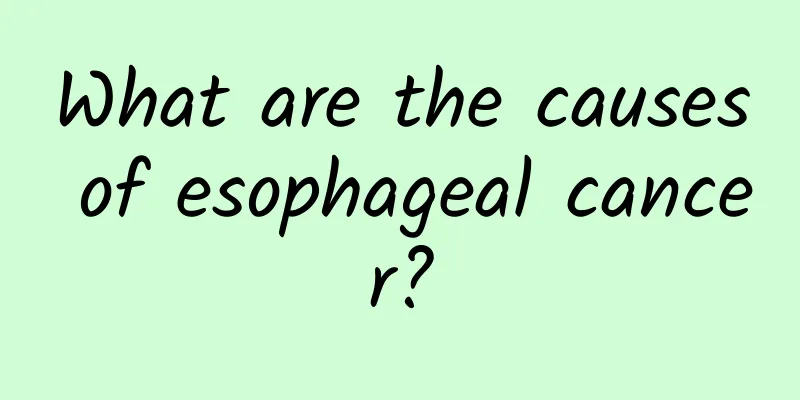What are the causes of esophageal cancer?

|
Esophageal cancer is a global cancer with extremely serious harm. According to the data of the World Health Organization (WHO), in 2008, there were 482,000 new cases of esophageal cancer in the world with a population of 6.75 billion, ranking eighth among all kinds of malignant tumors. The incidence of esophageal cancer in my country ranks fifth among malignant tumors, and the mortality rate ranks fourth, accounting for more than 50% of the world's cases and deaths. From 1998 to 2002, 38,339 new cases of esophageal cancer and 30,116 deaths were registered in 30 tumor registries in my country. Although the incidence of esophageal cancer in my country has shown a steady downward trend in recent years, it is still an important killer that threatens the lives of Chinese people and must arouse our high attention. The distribution of esophageal cancer in the population is related to age, gender, occupation, race, region, living environment, dietary habits, genetic susceptibility, etc. Existing survey data show that esophageal cancer may be a disease caused by multiple factors. The proposed causes are as follows: 1. Chemical etiology Nitrosamines. These compounds and their precursors are widely distributed and can be formed both inside and outside the body. They are highly carcinogenic. In high-incidence areas, the levels of nitrites in food, drinking water, pickled vegetables, and even in the saliva of patients are much higher than those in low-incidence areas. 2. Biological causes Fungi. A variety of fungi can be isolated from food in certain high-incidence areas, the upper digestive tract of esophageal cancer patients, or resected esophageal cancer specimens. Some of these fungi are carcinogenic. Some fungi can promote the formation of nitrosamines and their precursors, further promoting the occurrence of cancer. 3. Lack of certain trace elements The content of molybdenum, iron, zinc, fluorine, selenium, etc. in grains, vegetables and drinking water is relatively low. 4. Vitamin Lack Lack of vitamin A, vitamin B2, vitamin C, and insufficient intake of animal protein, fresh vegetables and fruits are common characteristics in areas with a high incidence of esophageal cancer. 5. Factors such as smoking, drinking, hot food, hot drinks, and unclean oral cavity Long-term drinking of strong alcohol, smoking addiction, eating hard, overheated food, eating too fast, causing chronic irritation, inflammation, trauma or oral hygiene, tooth decay, etc. may be related to the occurrence of esophageal cancer. 6. Genetic factors Genetic susceptibility factors for esophageal cancer. |
<<: A powerful anti-inflammatory ingredient is hidden in this "golden seasoning"
>>: 6 early symptoms of esophageal cancer
Recommend
Bleeding again after menstruation is over. Is this a blessing in disguise?
Generally speaking, menstruation lasts about thre...
How to treat vulvar itching?
Some women may seem to be glamorous on the surfac...
Leucorrhea after pregnancy
After pregnancy, the hormone levels in the body c...
Don't grow too tall? The taller you are, the higher your risk of cancer
Tall people may be more likely than shorter peopl...
What should girls with abundant body hair do?
Generally, people with abundant body hair have mo...
What is the cause of black vaginal discharge?
Abnormal vaginal discharge bothers many women. No...
How to make breasts grow bigger
The secondary development of breasts is the resul...
Diseases that women may suffer from night sweats
People who often suffer from night sweats are def...
How long does it take to bleed after taking Jin Yuting?
Nowadays, living together before marriage is no l...
What to do if you don't want to be pregnant for four months
If a woman does not want the child after an unexp...
Open-back headphones are comfortable to wear for long periods of time
□ Popular Science Times reporter Chen Jie As shor...
What causes stomach pain in early pregnancy?
Some netizens are concerned that stomach pain, bl...
What causes pimples on girls’ vulva?
When women have discomfort in their genitals, the...
How long will it take to give birth after the pelvis is fully entered?
When the pregnancy is coming to an end, the baby ...
How to regulate uterine coldness and blood deficiency
Uterine coldness and blood deficiency are common ...









